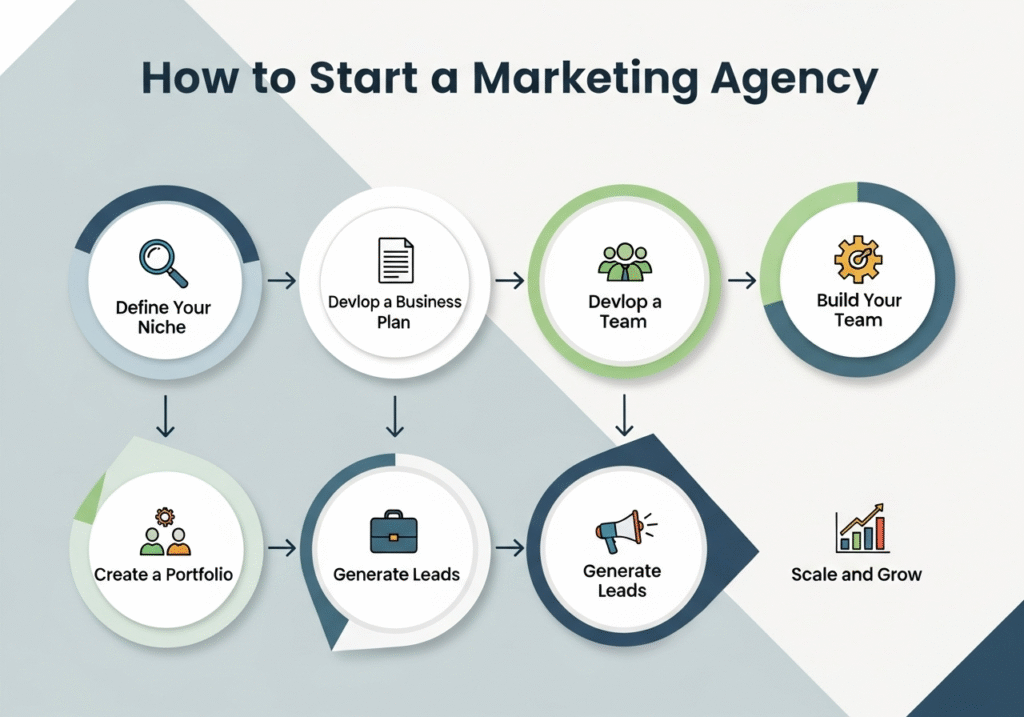Many business owners and marketers wonder should you use your sitename in keywords SEO when building their online presence. This decision directly impacts your search rankings, brand visibility, and overall SEO strategy success.
This guide is for business owners, digital marketers, and SEO professionals who want to make smart choices about incorporating their brand name into their keyword strategy. You’ll get practical insights that help you balance brand building with search performance.
We’ll explore the key benefits of including your sitename in SEO keywords, like boosting brand recognition and capturing branded searches. You’ll also learn about potential risks, including keyword cannibalization and wasted opportunities for high-value generic terms.
Finally, we’ll cover expert techniques for implementing sitename keywords strategically and measuring their real impact on your search performance.
Should You Use Your Sitename In keywords SEO Strategy?

What’s Constitutes A Sitename Keyword?
A sitename keyword is any search term that includes your website’s domain name, brand name, or business name as part of the search query. These branded search terms can appear in various forms – someone might search for “Nike running shoes,” “Amazon Prime delivery,” or “Starbucks near me.”
The sitename component acts as a brand identifier that signals to search engines the specific business or website a user wants to find. Sitename keywords exist on a spectrum from purely branded to brand-modified searches.
Pure branded searches include just your company name, while brand-modified searches combine your brand with additional descriptive terms like product names, services, or location modifiers. Understanding this distinction helps shape your SEO branding tips and overall keyword strategy.
How Search Engines Interpret Branded Terms
Search engines treat branded terms with special consideration because they represent clear user intent. When someone searches for your specific brand name, Google and other search engines recognize this as navigational intent – the user wants to find your specific website or information about your company.
This recognition gives branded searches certain advantages in search rankings. Search engines understand that if someone types “Apple iPhone specs,” they’re not looking for generic smartphone information – they want specific details about Apple’s product.
This clarity of intent often results in higher click-through rates and better user engagement metrics. Search algorithms also use branded searches as signals of brand authority and trust.
Frequent branded searches indicate that users actively seek out your brand, which search engines interpret as a positive ranking signal for your overall domain authority.
The difference between branded and non-branded keywords
| Branded Keywords | Non-branded Keywords |
|---|---|
| Include company/site name | Generic industry terms |
| Lower search volume | Higher search volume |
| Higher conversion rates | Lower conversion rates |
| Less competitive | Highly competitive |
| Navigational intent | Informational/commercial intent |
Branded keywords typically show higher conversion rates because users already have familiarity with your brand. Someone searching “Netflix subscription plans” is much closer to making a purchase decision than someone searching “streaming services comparison.”
Non-branded keywords cast a wider net but face intense competition. Generic terms like “project management software” attract users at various stages of the buying journey, from early research to ready-to-purchase, making conversion prediction more challenging.
The search volume patterns also differ significantly. While non-branded terms might generate thousands of monthly searches, your specific branded terms might only generate hundreds – but those hundreds represent users specifically interested in your offerings.
Common Misconceptions About Sitename SEO
Many website owners believe that ranking for their own brand name happens automatically, leading them to neglect branded keyword optimization entirely. This assumption can be costly when competitors start bidding on your brand terms in paid search or when negative content about your brand begins ranking prominently.
Another widespread misconception suggests that using your sitename in SEO keywords is redundant or spammy. Some marketers worry that including their brand name in meta descriptions, title tags, or content will trigger search engine penalties.
The reality is quite different – strategic brand inclusion often strengthens your site name SEO strategy and helps establish topical authority. Some businesses also mistakenly believe that branded keywords don’t provide valuable SEO insights.
They assume that people searching for their brand name will find them regardless of optimization efforts. This thinking overlooks important opportunities to control the narrative around your brand and capture users at different stages of brand awareness.
The opposite extreme involves over-optimizing for branded terms at the expense of discovery keywords. While your site name keyword optimization matters, balancing branded and non-branded terms creates a more comprehensive SEO approach that serves both brand reinforcement and new customer acquisition goals.
Benefits of Including Your Sitename in Keywords

Enhanced Brand Recognition And Recall
Including your sitename in SEO keywords creates a powerful connection between your brand and search terms that matter to your business. When users consistently see your site name alongside relevant keywords in search results, they start associating your brand with specific topics and solutions.
This repeated exposure builds mental connections that make people more likely to remember your site when they need your services later. Brand recall happens when someone thinks of your site first when facing a problem you solve.
Using your sitename in keywords helps create these memory triggers. For example, if you run a fitness blog called “FitLife” and optimize for terms like “FitLife workout routines” or “FitLife nutrition tips,” users begin linking your brand with fitness expertise.
This strategy works especially well for businesses in competitive niches where standing out requires strong brand association. The psychological impact goes beyond simple recognition. When people see branded search results, they perceive higher credibility and authority.
Your site name acts as a trust signal, suggesting established expertise in your field. This perception advantage can lead to more clicks and longer site visits, even when competing against higher-ranking generic results.
Protection Against Competitor Targeting
Smart competitors often bid on your brand terms in paid search campaigns, trying to steal traffic meant for your business. Including your sitename in organic keyword strategies helps you dominate search results for branded terms and related variations.
This defensive SEO approach makes it harder for competitors to intercept users looking specifically for your brand or services. Your sitename in keywords also helps protect against reputation management issues.
When you control more search real estate for terms including your brand name, negative results have less chance to appear prominently. This proactive approach to online reputation management keeps your brand image positive and controlled.
Consider creating content that targets long-tail keywords incorporating your site name with common industry terms. This strategy captures traffic from users who might search for your brand plus specific services, while also preventing competitors from ranking for these valuable hybrid terms.
Improved Click-Through Rates For Branded Searches
Branded searches typically generate higher click-through rates than generic keyword searches. Users searching for terms that include your site name already show intent and familiarity with your brand.
They’re more likely to click on your results because they’re specifically looking for content from your site or similar trusted sources. The data supports this approach – branded search terms often see CTRs 2-3 times higher than generic keywords.
When you optimize for these terms, you’re targeting users who are already warm leads. They’ve moved past the general research phase and want specific information from sources they recognize or trust.
Using sitename SEO strategy also helps you capture voice search traffic. People often include brand names when making voice queries, saying things like “Hey Google, find FitLife’s best workout plans.”
Optimizing for these natural language patterns that include your site name positions you perfectly for the growing voice search market. Your branded keyword strategy should include variations of how people might search for your site name combined with your main topics.
Create content that naturally incorporates these terms while providing genuine value to users who already know and trust your brand.
Potential Drawbacks and Risks To Consider

Keyword Cannibalization Issues
When you include your sitename in SEO keywords across multiple pages, you risk creating internal competition that hurts your overall search performance. Picture this: you have ten different pages all targeting variations of “YourSite best practices” or “YourSite solutions.”
Search engines get confused about which page should rank for these branded terms, splitting the ranking power between pages instead of consolidating it. This cannibalization becomes especially problematic when your homepage competes with product pages for the same branded keywords.
Your main page might lose ranking strength because search engines can’t determine which page best represents your brand’s primary message. The result? Lower overall visibility for all affected pages.
Reduced Organic Reach For Non-Branded Terms
Including your sitename in keywords can actually limit your discoverability for broader, non-branded searches. When you focus too heavily on “YourSite digital marketing” instead of just “digital marketing,” you’re essentially narrowing your audience to people already familiar with your brand.
This approach misses potential customers who search for generic terms like “best marketing tools” or “effective SEO strategies” without knowing your brand exists. Your content becomes less likely to appear in these valuable discovery searches, reducing your ability to attract new audiences who could become customers.
Wasted Budget on Unnecessary Branded Targeting
Running paid campaigns for keywords that include your sitename often represents poor budget allocation. People searching for your brand name are likely already aware of your business and more inclined to convert naturally.
Bidding on these terms competes against your own organic rankings, essentially paying for traffic you might capture for free. Smart competitors sometimes bid on your branded terms, driving up costs unnecessarily.
Your advertising budget could generate better returns targeting competitor names or industry-specific terms that capture users earlier in their buying journey.
Over-Optimization Penalties From Search Engines
Search engines penalize websites that stuff brand names unnaturally into content and meta tags. When your site name appears in every title tag, meta description, and heading, it triggers red flags for search algorithms designed to identify manipulative SEO tactics.
Google’s algorithm updates specifically target keyword stuffing and unnatural optimization patterns. Overusing your sitename in keywords creates an artificial-looking content pattern that can result in ranking penalties, reduced visibility, or even complete removal from search results.
The key is maintaining natural language flow while strategically incorporating branded terms only where they add genuine value to users.
Strategic Situations When Sitename Keywords Work Best

New Businesses Building Brand Awareness
Startups and new companies face a unique challenge: nobody knows who they are yet. When you’re just getting started, using your sitename in SEO keywords becomes a powerful tool for building brand recognition from day one.
Every search that includes your brand name is an opportunity to create that crucial first impression. New businesses should absolutely include their sitename in keywords because it helps establish brand authority in search results.
When potential customers search for your specific brand name, you want to own that search result completely. This means optimizing pages with combinations like “YourBrand reviews,” “YourBrand products,” or “YourBrand services” to capture branded searches early in your business journey.
The key advantage here is creating a foundation for future growth. As your brand gains traction, those early SEO efforts pay dividends. People who discover your business through general keyword searches might later search specifically for your brand name, and you’ll be ready to capture that traffic.
Consider creating dedicated pages that combine your sitename with popular industry terms. A new fitness app called “FitTracker” might target “FitTracker workout plans” or “FitTracker fitness tracking” to establish relevance for both branded and industry-specific searches.
Competitive Industries with Trademark Concerns
Highly competitive industries often involve complex trademark landscapes where brand protection becomes critical. Using your sitename in SEO keywords helps safeguard your digital territory and prevents competitors from capitalizing on your brand recognition.
In sectors like finance, technology, or healthcare, competitors might attempt to bid on your brand name in paid advertising or create content targeting your trademark terms.
By implementing a solid site name SEO strategy, you create defensive barriers around your brand while building stronger organic search presence. Legal services, pharmaceutical companies, and software businesses particularly benefit from this approach.
When your branded keywords rank strongly in organic results, it becomes harder for competitors to gain visibility on your trademark terms. This protective strategy works alongside your broader SEO best practices to maintain brand integrity.
The trademark protection extends beyond just ranking for your exact brand name. Smart businesses also target variations, common misspellings, and related phrases that include their sitename.
This comprehensive approach ensures customers find your authentic business rather than competitor alternatives or potentially harmful imitations.
E-commerce Sites with Unique Product Names
Online retailers with proprietary products or exclusive brand partnerships have golden opportunities to leverage sitename keywords effectively. When you sell unique items that customers can only find through your platform, including your sitename in keyword optimization becomes essential for capturing that specific demand.
Consider an e-commerce site called “TechHub” that exclusively sells a particular brand of electronics. Targeting keywords like “TechHub iPhone cases” or “TechHub exclusive deals” helps capture customers who specifically want to shop with that retailer.
This strategy works especially well when you have unique product lines, exclusive partnerships, or specialized inventory that competitors don’t offer. Private label products present another perfect scenario for sitename keyword optimization.
If you manufacture or exclusively distribute certain items, customers need to find your specific site to purchase them. Your branding SEO tips should focus heavily on connecting your unique products with your brand name in search results.
The beauty of this approach lies in reduced competition. While generic product terms face intense competition from major marketplaces, your branded product combinations often have much clearer paths to ranking success.
Smart e-commerce businesses build entire content strategies around these branded product opportunities, creating detailed product pages, buying guides, and comparison content that reinforces the connection between their sitename and unique offerings.
Expert Techniques For Implementing Sitename Keywords

Optimal Keyword Density And Placement Strategies
The sweet spot for using your sitename in SEO keywords typically sits between 1-3% keyword density across your content. You want to include your brand name naturally without stuffing it everywhere. Start by placing your sitename in your title tag, meta description, and H1 heading when it makes sense contextually.
Your homepage should feature your sitename prominently in the title tag, ideally at the beginning. For service or product pages, combine your sitename with relevant terms like “[Your Sitename] web design services” or “affordable hosting by [Your Sitename].”
This approach helps search engines understand your brand while maintaining relevance. Place sitename keywords in strategic locations like image alt tags, internal linking anchor text, and footer content.
However, avoid mechanical repetition. Instead, vary your approach by using your full business name, shortened versions, or acronyms depending on the context.
Balancing Branded And Generic keyword Ratios
Smart SEO branding tips suggest maintaining a 70/30 split between generic and branded keywords across your content strategy. Generic keywords like “digital marketing services” should dominate your content, while branded terms like “ABC Digital marketing services” complement them strategically.
Create separate content buckets for different keyword types:
- Generic-focused pages: Target broad industry terms without sitename integration
- Branded service pages: Combine your sitename with specific services or products
- Location-based content: Blend business name with geographic modifiers
This balanced approach ensures you capture both discovery traffic from people who don’t know your brand yet and branded searches from existing customers or those who’ve heard of you.
Local SEO Integration with Business Names
Local businesses gain significant advantages by incorporating their sitename into location-based keywords. If you’re “Johnson’s Auto Repair” in Denver, target phrases like “Johnson’s Auto Repair Denver” or “auto repair Denver Johnson’s.”
Google My Business optimization becomes crucial here. Your business name should match exactly across your website, GMB profile, and local directory listings. Create location pages that naturally include your business name alongside city or neighborhood terms.
Consider these local integration strategies:
| Strategy | Example | SEO Benefit |
|---|---|---|
| City + Business Name | “Phoenix Mike’s Plumbing” | Local search visibility |
| Service + Location + Brand | “Emergency plumbing Phoenix Mike’s” | Intent-driven traffic |
| Neighborhood Integration | “Downtown Phoenix Mike’s Plumbing” | Hyper-local targeting |
Long-tail Variations Incorporating Your Sitename
Long-tail keywords with your sitename often convert better because they capture users further down the buying funnel. Someone searching “best web design company Phoenix” might be browsing, but “Phoenix Web Solutions custom e-commerce design” shows clear purchase intent.
Develop long-tail variations by combining your sitename with:
- Problem-solving phrases: “[Your Sitename] fixes broken WordPress sites”
- Comparison terms: “why choose [Your Sitename] over competitors”
- Process-oriented queries: “how [Your Sitename] handles website security”
- Specific service combinations: “[Your Sitename] SEO and social media packages”
Create FAQ pages that naturally incorporate these long-tail branded phrases. Questions like “What makes [Your Sitename] different from other agencies?” allow for natural sitename keyword optimization while providing valuable user information.
Remember to track performance metrics for each variation. Some branded long-tail keywords might drive small volumes but convert exceptionally well, making them valuable for your overall site name SEO strategy.
Measuring Success and Performance Tracking

Key Metrics To Monitor For Branded Keyword Campaigns
Tracking the right metrics makes all the difference when you use your sitename in SEO keywords. Start with brand search volume – this tells you how many people actually search for your company name.
Watch for increases in branded searches after implementing your site name SEO strategy, as this indicates growing brand recognition. Click-through rates (CTR) for branded terms typically run much higher than generic keywords, often hitting 70-90%. If your branded CTRs drop below 60%, something needs attention.
Monitor your average position for branded searches too – you should dominate the first page when people search your company name. Conversion rates from branded traffic deserve special attention.
These visitors already know your brand, so conversion rates should significantly exceed generic keyword performance. Track brand mention sentiment across search results, social media, and review platforms to gauge overall brand health.
Don’t forget impression share for your branded terms. You want to capture 90%+ of available impressions when people search your business name. Lost impression share often indicates competitor interference or budget constraints affecting your branded campaigns.
Tools For Tracking Sitename Keyword Effectiveness
Google Search Console provides the foundation for monitoring your branding SEO tips performance. The Performance report shows exactly which queries containing your site name drive traffic, plus their positions and CTRs.
Use the Brand filter in Search Analytics to isolate branded versus non-branded performance. SEMrush and Ahrefs excel at competitor branded keyword analysis. These tools reveal when competitors bid on your brand name or create content targeting your company.
Set up brand monitoring alerts to catch these situations quickly. Google Analytics helps connect branded search traffic to actual business outcomes. Create custom segments for branded organic traffic and compare conversion paths, session duration, and revenue per visitor against generic traffic.
The Attribution reports show how branded searches fit into longer customer journeys. Brand monitoring tools like Mention, Brand24, or Google Alerts track your company name across the web. They catch mentions that don’t link back to your site – opportunities to build relationships or address reputation issues.
For advanced tracking, Google Tag Manager can capture branded search behavior on your site. Set up events when visitors from branded searches complete specific actions, giving deeper insight into how site name keyword optimization affects user behavior.
ROI Analysis For Branded Versus Generic Terms
Branded keywords typically deliver 3-5x higher ROI than generic terms. The cost per click runs lower because you face less competition, while conversion rates stay consistently higher.
Calculate your branded keyword ROI by dividing revenue from branded traffic by total branded keyword investment, including content creation and paid advertising costs. Compare customer lifetime value (CLV) between branded and generic traffic sources.
Branded visitors often become more loyal customers, leading to higher repeat purchase rates and referrals. Track this over 6-12 months to see the full picture. Generic keywords cost more but bring volume and new customer acquisition.
A balanced approach works best – use generic terms to build awareness, then capture that growing brand interest with optimized branded campaigns. The investment in generic keywords should show up as increased branded search volume over time.
Budget allocation typically favors a 70-30 split between generic and branded efforts for established businesses. Newer companies might reverse this ratio until brand recognition grows. Monitor branded search volume monthly – consistent growth indicates your overall SEO strategy is working effectively.

Using your sitename in keywords can be a powerful SEO strategy when done right, but it’s not a one-size-fits-all solution. The key lies in understanding when your brand name adds real search value and when it might actually work against you.
Strong, recognizable brands often see great results from including their sitename in target keywords, especially for commercial terms where brand trust matters most.
The smartest approach is to test sitename keywords strategically rather than applying them across your entire content strategy. Focus on high-intent commercial pages, monitor your performance data closely, and be ready to adjust based on what the numbers tell you.
Remember, successful SEO comes from giving searchers exactly what they’re looking for – sometimes that includes your brand name, and sometimes it doesn’t.
FAQs
1. Should I include my website name in my SEO keywords?
It depends on your goals. If people already search for your brand, including it can help visibility. For new sites, focusing on product or service keywords usually works better.
2. Does adding my site name to keywords hurt my SEO rankings?
Not directly. Search engines already know your site name from your domain and title tags. Using your brand name as a keyword could take space from terms your audience actually searches for.
3. When does it make sense to target my brand name as a keyword?
Target your brand name when competitors bid on it, people misspell it, or you’re an established brand. Otherwise, focus on keywords related to your products or services.
4. How do I know if people search for my website name?
Check Google Search Console for branded search traffic and use keyword tools to see search volumes for your brand name. Low numbers suggest focusing on other keywords.
5. Can I use variations of my site name in keywords?
Yes, if people often use different versions or misspellings of your brand name. These variations may be worth targeting.
6. Should my homepage target my brand name as the main keyword?
Your homepage naturally ranks for your brand name. Instead, use it to target broader terms related to your main offerings.
7. Is it better to focus on branded keywords or generic keywords?
Generic keywords usually bring more valuable traffic. Branded keywords help mainly when people already know you. Start with generic terms, then add branded terms later.
8. How do branded keywords affect my overall SEO strategy?
Branded keywords often have less competition and higher conversion rates but lower search volumes. They work best alongside generic terms that new customers use.
9. Can competitors target my business name in their SEO?
Yes, especially in paid ads. Optimizing your own content for your brand name helps protect your search presence.
10. What’s the biggest mistake people make with brand name keywords?
Focusing too much on brand keywords too early. New sites get better results targeting terms potential customers actually search for. Save brand-focused SEO for later.



